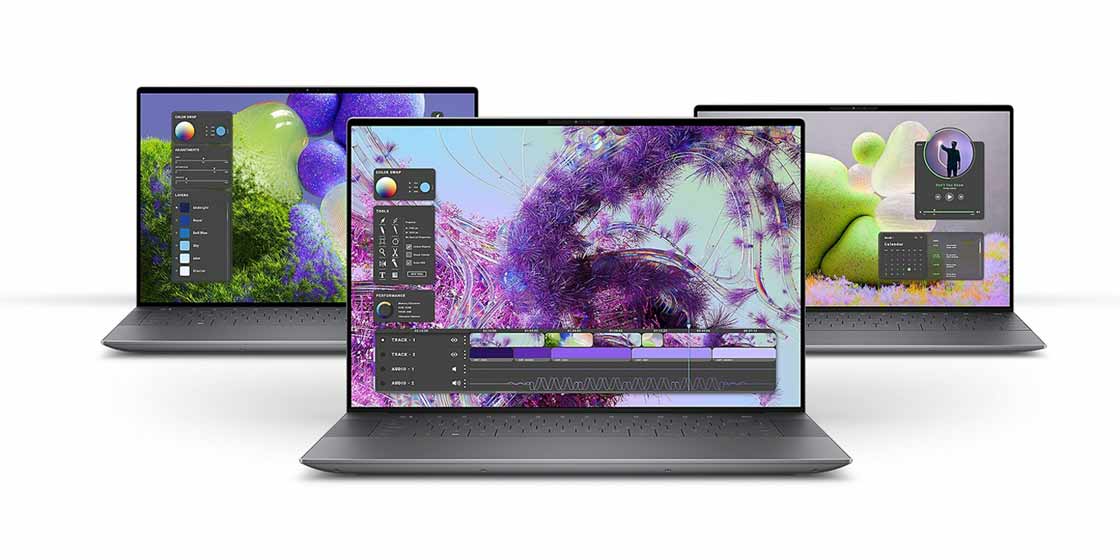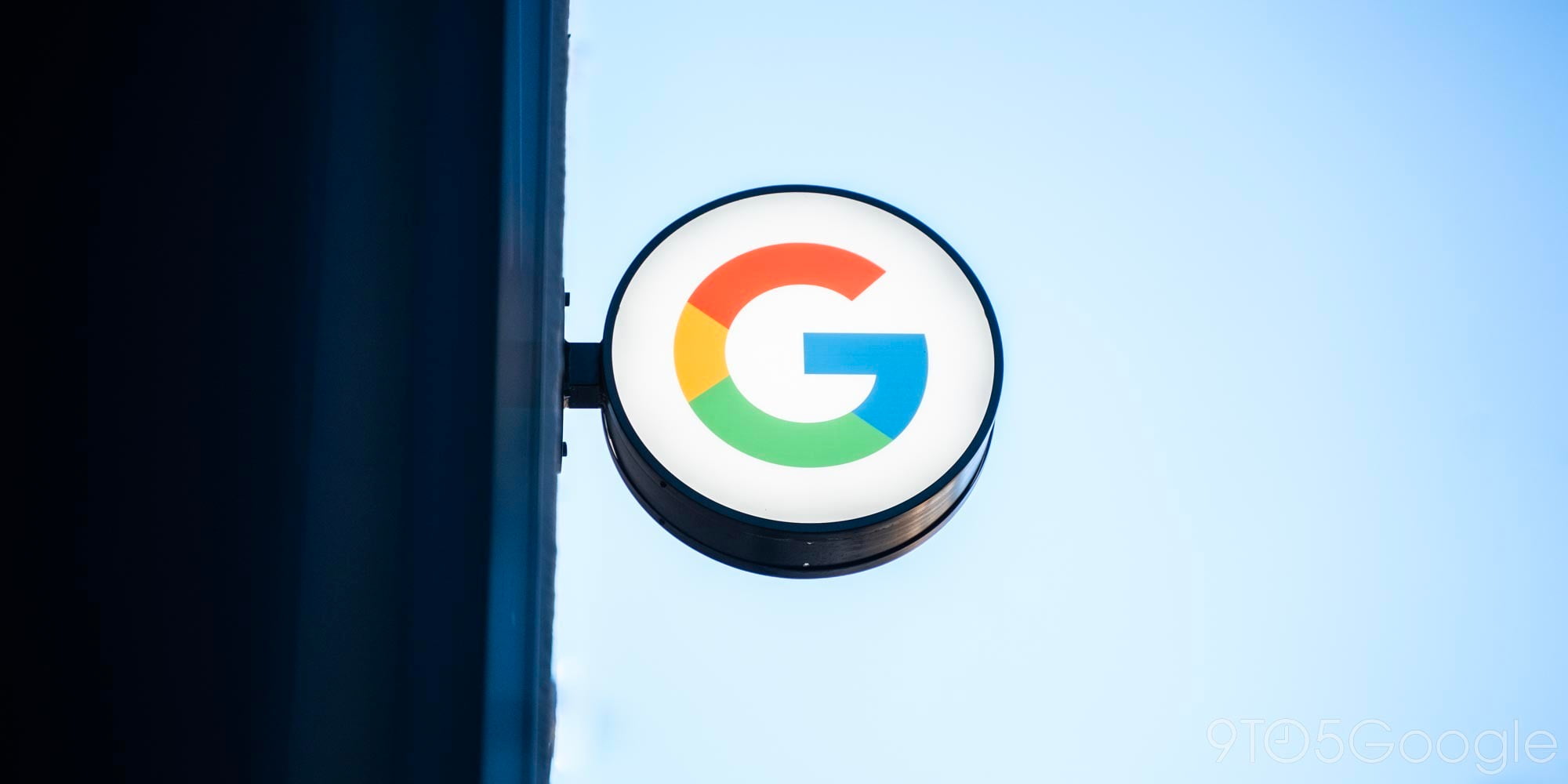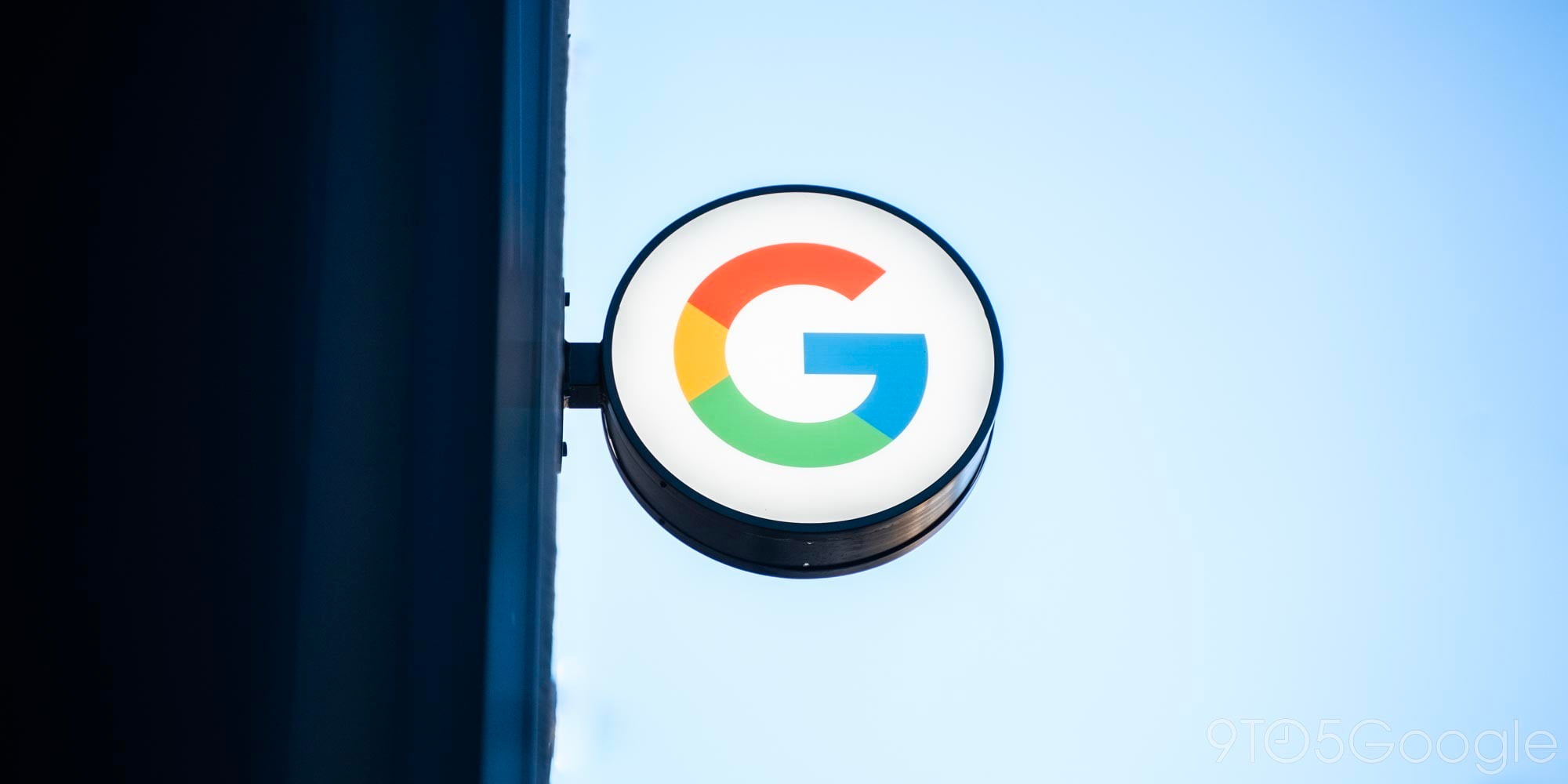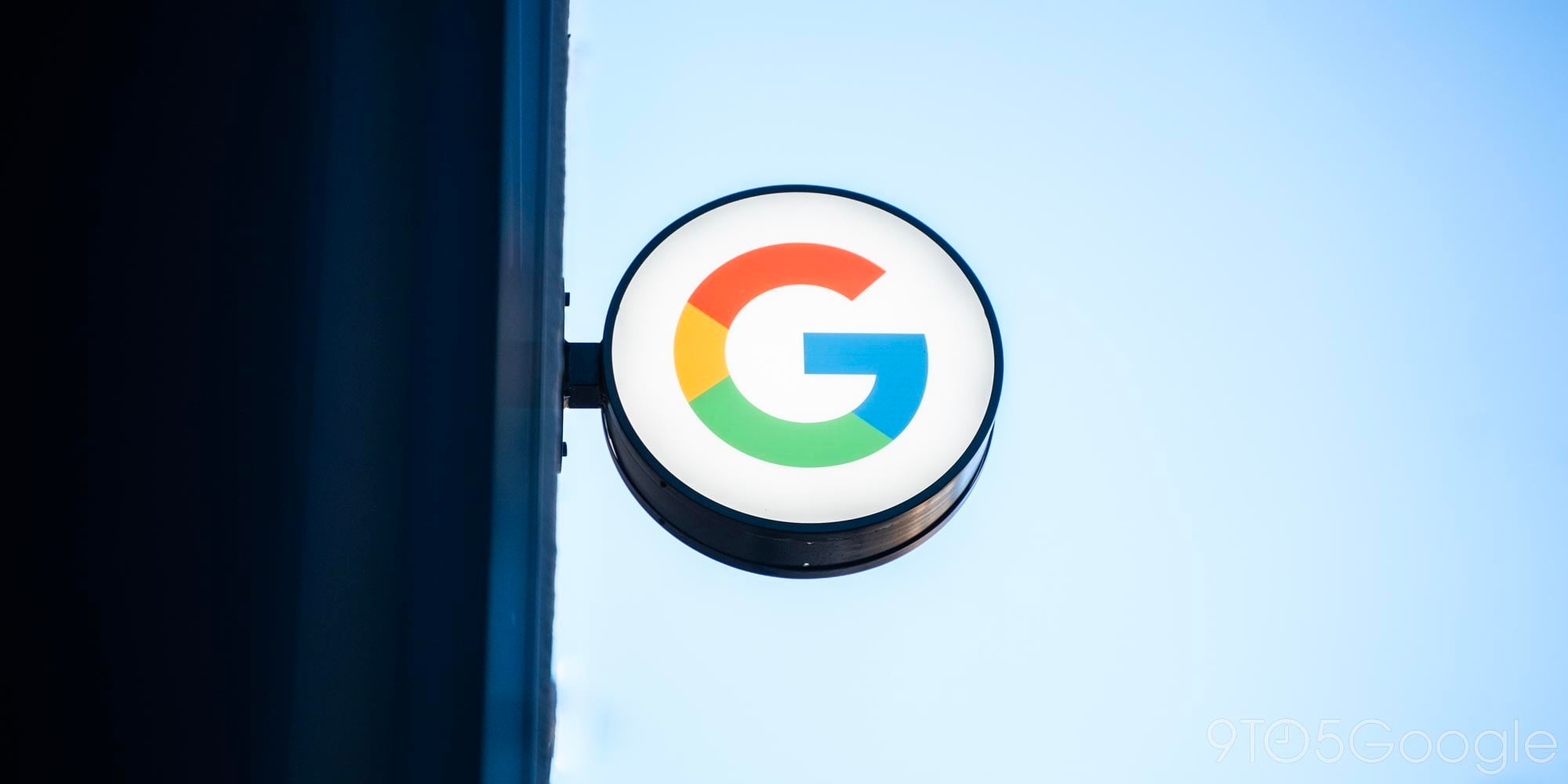
Dell’s 2024 XPS lineup is powered by Intel Core Ultra SoCs with AI
Dell announced the next generation of XPS laptops for 2024, built with high-end materials and powered by high-end Intel Core Ultra chips made for AI.
Expand Expanding Close
Dell announced the next generation of XPS laptops for 2024, built with high-end materials and powered by high-end Intel Core Ultra chips made for AI.
Expand Expanding Close
Dell has refreshed the popular Chromebook 3100 lineup to add LTE connectivity, making the entry-level devices a solid option for at-home learning or learning on the go.
Expand Expanding Close
Chrome OS has made vast inroads into schools around the world. Many of the operating system’s advantages also translate to the business space, and Google is today making hardware adoption easier with Chromebook Enterprise and the first Dell Latitude Chromebooks.

One of my personal favorite Chromebooks ever was the Dell Chromebook 13. It was a premium machine that was a spectacular alternative to Google’s Chromebook Pixel. Since then, though, Dell has mostly focused on low-end Chromebooks. Today at IFA though, Dell is announcing a new premium Chromebook.


2017 is looking up for Chrome OS with a renewed focus on education, the expansion of Android apps, and tons of new hardware. Just this month we’ve seen the debut of new ‘flagship’ Chromebooks from ASUS and Samsung, as well as new models from the likes of Acer. Today, though, Dell is stepping in with three brand new Chromebooks, all designed for the education market.


Dell has never been huge in the Android tablet market, but today it admitted defeat — the company has just revealed (via PCWorld) that they will no longer be selling Android tablets. The tablets never sold very well and as its 2-in-1 Windows tablet business picks up, it only makes sense that the company put to rest the Android-powered devices that mostly played the background.


Of all the Chromebooks that were announced this year, it was the new Dell Chromebook 13 range that caught our eye. Unlike most Chromebooks, it’s not really low-end and cheap, but’s also not quite as extraordinarily priced as the Chromebook Pixel. It sits somewhere in between, right in no-man’s land. The cheapest model will set you back $429, while the most expensive is around $650 currently. In the UK, prices range from £484 to £856…


Keep up with the best gear and deals on the web by signing up for the 9to5Toys Newsletter. Also, be sure to check us out on: Twitter, RSS Feed, Facebook, Google+ and Safari push notifications.

 Toshiba Canvio Connect II 3TB Portable USB 3.0 Hard Drive $100 shipped (Orig. $170)
Toshiba Canvio Connect II 3TB Portable USB 3.0 Hard Drive $100 shipped (Orig. $170)





 Chromebook for Work is Google’s lineup of premium Chrome OS-powered laptops which it promotes as easy to deploy, highly secure, and ready to run legacy Window applications through OS virtualization. Today the company announced that Dell will begin selling a new one of these business-ready Chromebooks starting September 17th, called the Dell Chromebook 13.
Chromebook for Work is Google’s lineup of premium Chrome OS-powered laptops which it promotes as easy to deploy, highly secure, and ready to run legacy Window applications through OS virtualization. Today the company announced that Dell will begin selling a new one of these business-ready Chromebooks starting September 17th, called the Dell Chromebook 13.
The Chromebook 13 is, like the rest of the Chromebook for Work line, packing a serious punch for a computer running such a lightweight operating system. It has a 13.3″ full HD touchscreen display (1920×1080), a 5th-generation Intel Core i5 processor, a backlit keyboard and glass touchpad, and a palmrest made out of magnesium alloy. The laptop is quoted for 12 hours of battery life, although these ratings are usually generous. The starting price will be $399 when it goes on sale, with no more detail on upgrade options or variants. “Enterprise class performance at an economical price point,” Google says in its blog post.
Chrome OS certainly does hold a lot of promise for IT departments frustrated with the current solutions out there, namely Windows and all the tumult going on at Microsoft over the company’s strategy for the operating system going forward. Google’s operating system was built at a much later time, and without the baggage of years and years of developing and supporting software meant for a place and time that has since passed. In my day-to-day there are rarely more than a few edge case applications and tools I need a full-on desktop computer for, so the ability of Chrome OS to virtualize Windows and run its applications is just icing on the cake of an OS which recognizes that many business-related programs can run in the web and be almost indistinguishable from their desktop equivalents — especially with Chrome OS’s ability to run web apps as individual windowed apps.

Google’s Android for Work program already has more than 10,000 businesses that are “testing, deploying or using Android for Work” in some capacity, and now the company has announced 40 new partners. Notably, several Android handset OEMs are joining the group, as well as 8 cellular carriers.
The Android for Work program took off with the help of our partners across the Android ecosystem, and today we’re expanding the family to 40 companies to continue the momentum, including new device manufacturers, application makers and management providers.
AT&T, Sprint, Verizon, T-Mobile, HTC, Sony, LG, Huawei, Lenovo, Motorola, Dell, and HP are among some of the notable additions. Google makes note of Blackphone as one of the newly-partnered companies that brings the enhanced privacy and security features on top of the Android platform.

Keep up with the best gear and deals on the web by signing up for the 9to5Toys Newsletter. Also, be sure to check us out on: Twitter, RSS Feed, Facebook, Google+ and Safari push notifications.











Microsoft announced today that it’s expanding partnerships with Samsung, Dell, and other manufacturers to get its suite of mobile productivity apps onto more Android devices.
Expand
Expanding
Close


Today Dell is launching the next generation of its education-aimed Chromebook 11, and the laptop comes with many improvements—durability and affordability were the focus with this device according to the company—that make it a worthy upgrade. The device packs an 11-inch, 1366 x 768 resolution screen (which is definitely nothing special), but there are a few things about this laptop that set it apart from the rest (and from its predecessor).
Expand
Expanding
Close

Dell announced today at CES 2015 that its Venue 8 7000 Android-powered tablet is now available. The device—originally announced back in September at an Intel event—costs $400 and is available now in the US from Dell.com and Best Buy stores. It will launch in Canada later this week and in Australia, New Zealand, China, Hong Kong, Japan, Singapore, India, Germany and the UK during early 2015.
The Dell Venue 8 7000 is “the world’s thinnest tablet,” according to the company, coming in at just 6mm. Dell also touts that the device features an “infinity display” with very little side bezel, making the display nearly edge-to-edge. The 8.4-inch display comes with a QHD 2560 x 1600 resolution, as well.
Expand
Expanding
Close

Dell announced today new models of its Venue 7 and Venue 8 Android tablets coming next month.
Dell Venue 7 and Venue 8 Tablets: Solid performance in an eye-catching design
The updated Dell Venue 7 and 8 tablets enable people to experience enjoyable entertainment and productivity in an attractive, thin, and light design. Whether reviewing a presentation or kicking back to watch movies, the HD (Venue 7) and Full HD (Venue 8) screens deliver brighter viewing angles and a better viewing experience, even outdoors. Premium audio technology from Waves MAXXAudio Pro ensures great sound quality, especially when paired with the optional Dell Bluetooth Portable Speaker. Based on Android 4.4 “Kit Kat”, the tablets feature the latest Intel Atom Z3460 (Venue 7) and Z3480 (Venue 8) processors (“Merrifield”) to drive faster web browsing and media editing, contributing to a premium mobility experience at a price that’s pleasing to the wallet. The new Dell Venue tablets also feature an easy-grip design on the back, and both are available in red or black color options.
Dell says its updated tablets will be available on its site starting July 1st. The Venue 7 retails for $159.99 while the larger Venue 8 goes for $199.99.
Expand
Expanding
Close


The profile of Chromebooks is likely to get a boost after the world’s largest PC manufacturer, Lenovo, announced its first Chromebooks aimed at the consumer market. Pricing starts at $279.
Lenovo, best known for its Windows laptops, launched its first Chromebook in January – but that one was pitched at the education market, selling in bulk to schools and colleges. This is the first time it has pitched a Chromebook directly at consumers – something which may worry Microsoft. Lenovo has 18.6 percent of the PC market, ahead of HP, Dell and Acer …
Expand
Expanding
Close

After witnessing the success of dongles like the Chomecast, Dell has just unveiled its latest accessory, the Wyse Cloud Connect dongle. This accessory will run $130 and be able to connect to any display that offers an HDMI or MHL port. Once the Cloud Connect is connected to the display, users can connect keyboards and mice to it via BlueTooth or mini USB. There’s also a microSD card slot with support for up to 32GB of local storage. The big selling point, however, is that its powered by Android, Jelly Bean to be exact, and offers the full experience on the connected display. Users will have access to the Play Store and all compatible apps within it.
Dell is also touting that the Cloud Connect dongle can remotely access Mac OS X and Windows PCs via Citrix, Microsoft or VMWare virtualization technologies. This option will offer the same experience that we’ve expected with remote access services, but on a larger display and only a small, flash-drive sized dongle. Both the Android and OS X/Windows interfaces will be presented in 1080p quality.
Although, it’s important to note that Dell is main market with the Cloud Connect is businesses and schools. The Cloud Connect management dashboard allows IT administrators to set permissions and easily control what the end user can and cannot access. So this means that things like the Play Store could be heavily restricted for users.
The Wyse Cloud Connect is available on Dell’s website for $130.


Microsoft’s renewed nervousness about Chromebooks was likely influenced by advance knowledge of Dell’s announcement that it would be joining Acer, HP and Samsung in manufacturing the ultraportable laptops in January.
The machine will have a Celeron 2955U processor, a choice of 2GB or 4GB RAM and 16GB of flash storage. The screen will be an 11-inch 1366×768 display with 720p front-facing webcam. You’ll get two USB 3 sockets plus HDMI in a case less than an inch thick and weighing under three pounds. Battery-life is said to be around 10 hours …
Expand
Expanding
Close


We now know that Baidu Yi, a brand new mobile operating system unveiled Monday by Baidu, the dominant search engine company in China, is forked from Android. We knew it would be stripped of Google search, but we haven’t been aware of the extent of customization. A DigiTimes story from this morning indicates the software cuts all ties with Google services:
Baidu’s new software platform will feature map, e-book reader, cloud storage and search functions.
Baidu yesterday forged a partnership with Dell, which is expected to unveil first Baidu Yi-powered tablets and smartphones this November, in time for the holiday shopping season. Some even think Baidu Yi gear will roll out worldwide rather than in China only. The publication also highlights another interesting nugget we haven’t known, that Dell will preload devices with an Android-based app of its own.
Basically a storefront to the online Dell store, the app will allow for buying Dell computers online and giving ratings. No doubt Dell sees Baidu Yi both as an opportunity to drum up publicity for their ailing tablet business and upsell consumers to their computer products. No word on whether Baidu Yi will run a customized user interface atop Android, similar to Samsung’s TouchWiz or Motorola’s MotoBlur.


Dell discontinued its Streak 5 hybrid tablet, seen above, last November. The company is now leveraging its Baidu tie-in in the hope of re-entering the space in a meaningful way.
9to5Google yesterday reported that Baidu, the leading search engine in China, unveiled a brand new operating system dubbed Baidu Yi. Forked from Android and stripped of Google search and services (in much the same way the Amazon tablet‘s software is rumored to be), Baidu Yi aims to keep Google’s Android in China at bay. Following up, Reuters reported Tuesday that Baidu is partnering with Dell on tablets and phones that will run the new software. A Dell spokesperson told the news gathering organization:
We have a partnership with Baidu and you know we have the Streak 5 tablet, so the partnership will be in that space.
The first devices are expected to hit the marketplace early November. The surprising news comes at a time when the mobile industry flipped upside down.“It is really interesting to see Baidu forking its nemesis’ software and partnering with Dell here”, former Engadget editor Joshua Topolsky commented on Twitter. Computer maker Dell, which pulled its five-inch hybrid Streak 5 tablet last August due to poor reception, has some experience working with Chinese carriers and companies as their inaugural smartphone launched in China first. Evidently, both companies have their sights set on the recession-proof global mobile landscape and it’s easy to grasp why…

Engadget is reporting that Dell has pulled the 5-inch Android tablet/phone Dell Streak in order to perform updates. Dell’s PR crew wouldn’t say anything, but a customer support agent was happy to declare that the Streak hasn’t been killed — just receiving an update. The agent also told Engadget it’s an issue in the Android OS. While you can’t order it now, the Dell Streak should be back on shelves early August.
Expand
Expanding
Close